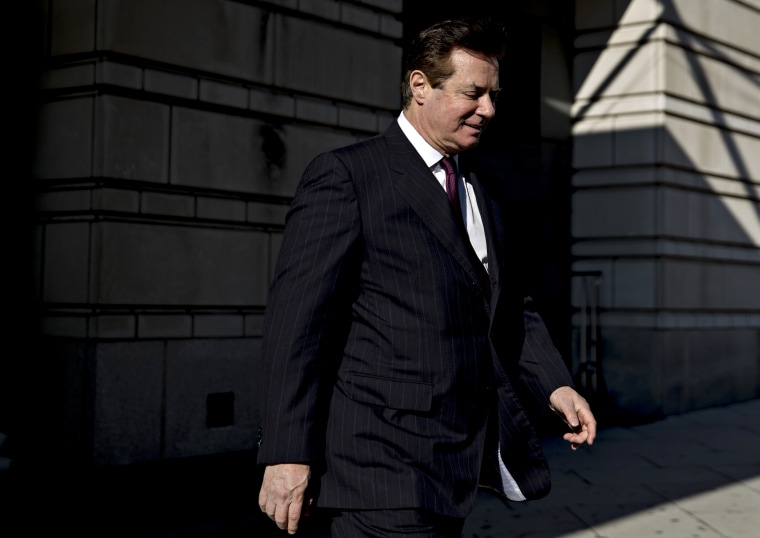Minutes after Judge Amy Berman Jackson of the U.S. District Court of the District of Columbia imposed a 60-month sentence Wednesday on Donald Trump’s onetime campaign manager Paul Manafort, the Manhattan district attorney’s office added to Manafort’s woes by indicting him in state court.
The state indictment charges 16 counts, including mortgage fraud, falsifying business records and a scheme to defraud.
Manafort may be relying on the president to issue a pardon on the federal conviction. If he is, he should refocus his energies, forget about Trump, and instead rely on his lawyers to challenge the new state indictment based on “double jeopardy” grounds. Unlike the federal pardon, the jeopardy challenge is one he at least has some control over.
The Double Jeopardy Clause of the Fifth Amendment to the Constitution states that, “nor shall any person be subject for the same offense to be twice put in jeopardy of life or limb.” This federal protection is made applicable to the states, including New York, by virtue of incorporation through the Fourteenth Amendment. The Double Jeopardy Clause contains two separate prohibitions: no second prosecution for the same offense after a defendant has been either convicted or acquitted; and no multiple punishments for the same offense.
The challenge in most cases is determining whether the second offense is the “same” as the first offense. In 1932, in the case of Blockburger v. U.S., the Supreme Court set out a test for determining whether successive prosecutions are the “same.” The “test to be applied … is whether each provision requires proof of a fact which the other does not.” If no, then the two offenses are the same, and double jeopardy bars additional prosecution and punishment.
Double jeopardy is one of those protections, however, where the exceptions swallow the rule.
For example, under the “dual sovereignty” doctrine, successive state and federal prosecutions for the same conduct may not be barred by the Constitution's double jeopardy clause. Because the state and federal governments are treated as different “kingdoms,” the constitutional Blockburger “same-elements” test does not apply.
Manafort’s best chance against these state charges flows not from his federal rights, but rather his state rights.
The New York State Constitution has its own double jeopardy clause. But in New York, protection against double jeopardy is statutory as well as constitutional.
New York’s double jeopardy statute has two parts. Part one is simple: It prohibits two prosecutions “for the same offense.” Part two is not simple. It prohibits separate prosecutions for two offenses “based upon the same act or criminal transaction,” followed by the word “unless” and a list of eight very complicated exceptions to that prohibition.
One exception allows successive prosecutions where the crimes have “substantially” different elements. Another permits a second prosecution where a different victim is involved. Yet another incorporates its own “same elements” test, but additionally requires that the different crimes be designed to “prevent very different kinds of harm or evil.”
If, for example, the new state charges against Manafort have “substantially” different elements, or involve different “victims” (e.g., different banks) then Manafort might not have a double jeopardy defense under New York state law.
Then again, his defense team may be able to convince a New York state judge that the state legislature intended the state double jeopardy laws to provide greater protection than the Fifth Amendment double jeopardy clause. If Manafort’s defense team can show he’s being twice prosecuted for the same offense, or based on the same act or transaction, then the court could potentially toss this indictment by the Manhattan district attorney.
Based on the relatively lenient sentences recently achieved by his defense lawyers in federal court, they are arguably on a hot streak.
Danny Cevallos is an MSNBC legal analyst. Follow @CevallosLaw on Twitter.
